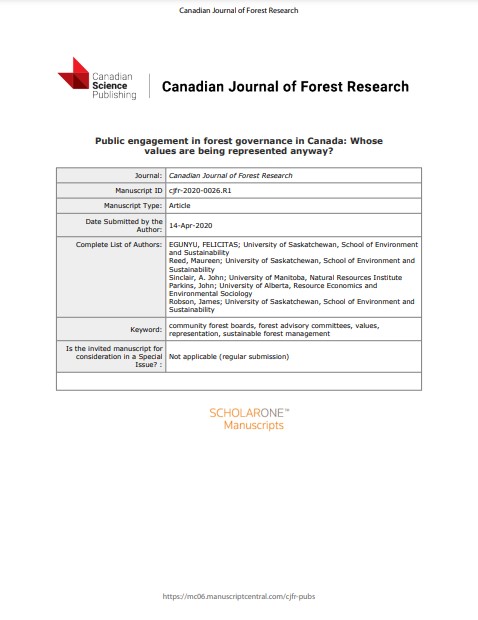Public engagement in forest governance in Canada: whose values are being represented anyway?
Bosque Modelo:
Manitoba
Temática:
Participación social
Tipo de documento:
Artículo científico
Resumen
Researchers and advocates have long argued that on-going engagement by broad segments of the public can help make forests and forest-based communities more sustainable and decisions more enduring. In Canada, public engagement in sustainable forest management has primarily taken one of two approaches – advisory forums through forest-sector advisory committees (FACs) and direct decision-making authority through community forest boards (CFBs). The purpose of this paper is to compare these two approaches by focusing on who participates and the values participants bring to their deliberations. We conducted a national survey of FACs and CFBs, involving 402 participants. Results showed that both models favoured well-educated, Caucasian men and fell short on the representation of women and Indigenous peoples. Additionally, despite different levels of authority in relation to forest management decisions, participants in CFBs and FACs shared similar forest values. Hence, we conclude neither model of forest governance encourages participation from a diverse public. Our findings suggest the need to find new ways of recruiting diverse participants and to investigate more deeply whether local and extra-local pressures and power dynamics shape these processes. Such information can inform the establishment of more robust institutions for decision making in support of sustainable forest management.
Información Bibliográfica
Autor:
Egunyu, Felicitas; Reed, Maureen G.; Sinclair, A. John; Parkins, John R.; Robson, James P.
Revista:
Canadian Journal of Forest Research
Año:
2020
N°:
11
País :
Canadá
Páginas:
1152 -1159
Volumen:
50
Idioma:
Ingles
Palabras claves
community forest boards, forest advisory committees, values, representation, sustainable forest management





